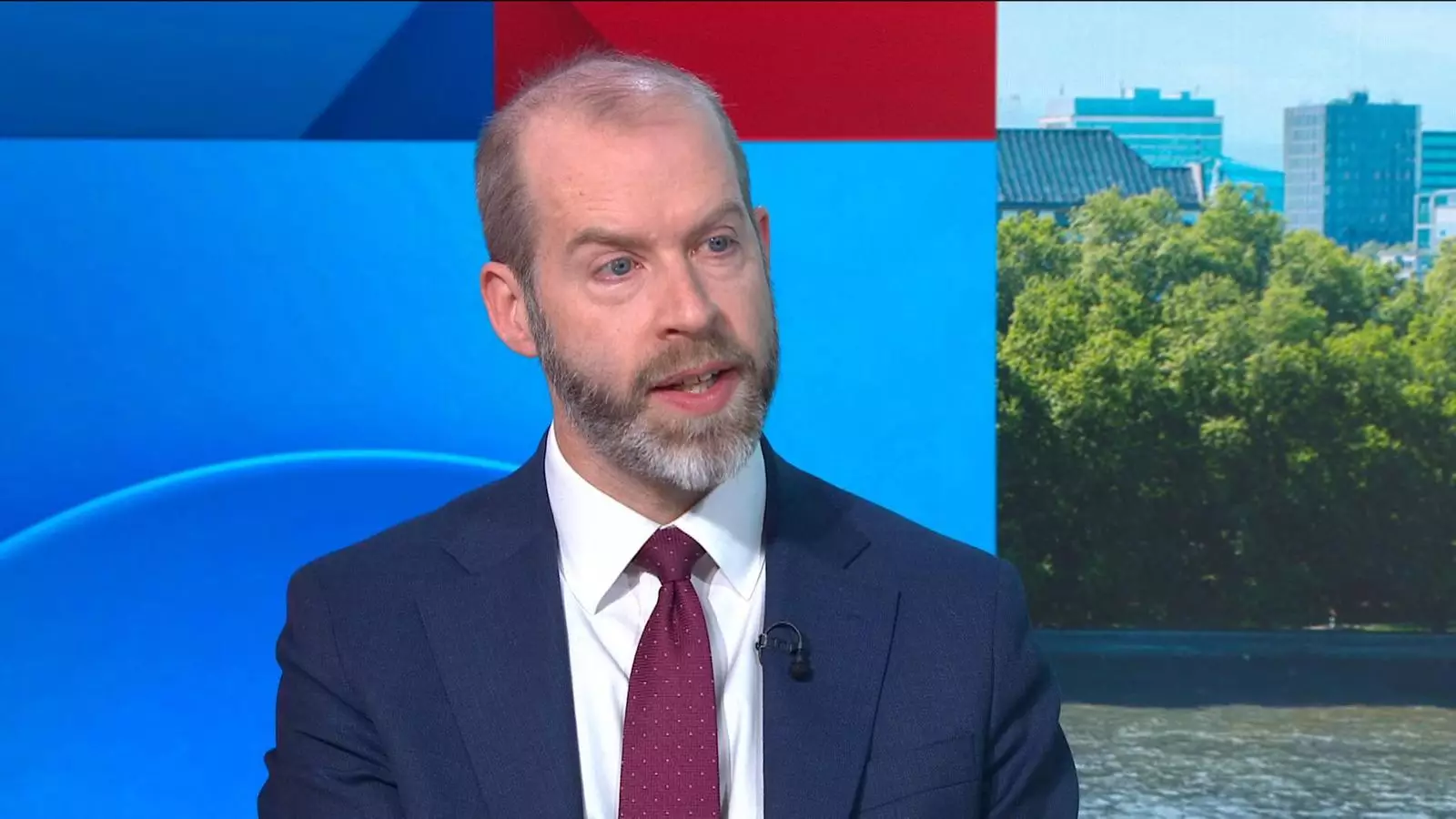The recent turmoil surrounding British Steel highlights a significant failure in the handling of national resources. With the urgency of an emergency bill rushed through Parliament, it has become evident that the sensitivity of certain sectors, particularly steel, requires rigorous local control rather than outsourcing to foreign entities. British Steel, a long-standing cornerstone of the UK’s industrial landscape, now finds itself under the tenuous grip of the Jingye Group, a Chinese company that has demonstrated a troubling inconsistency in commitment to the UK’s industrial fabric. As reported, the business secretary, Jonathan Reynolds, has expressed reservations about inviting foreign investment from nations like China into the domestic steel sector again. Such a viewpoint reflects a growing sentiment that essential industries—especially those integral to national security and economic sovereignty—should remain in stable, local hands.
Emergency Legislation: A Band-Aid Solution
The hastily enacted Steel Industry (Special Measures) Bill is a testament to the government’s drastic response to a potential crisis. However, it also underscores a troubling reality: reactive governance cannot substitute for proactive and thoughtful strategy. This emergency legislation, which grants the government the power to intervene operationally in British Steel, is, at its core, a band-aid solution to a deeper malady. Instead of drafting a comprehensive, long-term strategy for the revival of the steel sector, the administration has resorted to temporary measures that may only prolong the inevitable complications of mismanagement and inadequate foresight. The reality is that the bill places the UK Government in a position where it can control operations, yet it has not addressed the systemic issues that led to British Steel’s current plight.
Trust and Investment: A Fragile Relationship
Reynolds has voiced a crucial point regarding the trust deficit surrounding foreign investments, particularly from Chinese firms. This sentiment is not just political posturing; it speaks to a larger issue of national reliability and economic independence. When Jingye assumed control of British Steel, it was welcomed as a salvation from insolvency; however, the subsequent cancelation of raw material orders has exposed the vulnerabilities inherent in such investments. British politicians and citizens have every right to be wary of foreign ownership in sectors deemed sensitive. The trust bar for Chinese investment in vital UK industries is high—and justifiably so. The UK’s landscape of manufacturing and production should not be at the mercy of overseas decisions influenced by interests that may not align with our own.
The Illusion of Private Sector Salvation
Despite the business secretary’s hopeful remarks about the future possibility of a commercial private sector partner, one must question the realism of relying on private investment in light of current challenges. The idea that a private entity can seamlessly step in and bridge the technological and infrastructural gaps without substantial public support seems increasingly unrealistic. The transition to new steel technologies is not a mere business venture; it requires substantial capital and commitment. The glimmer of potential that Reynolds sees in private partners may quickly dim in the harsh light of economic realities and dwindling public confidence.
National Interests Versus Foreign Profits
Critics have labeled the government’s actions as a “botched nationalisation,” echoing sentiments of discontent that increasingly portray the Conservative Party as reactive rather than strategic. While no one questions the need for a robust steel industry—a linchpin for jobs and economic stability—it is perilous to allow a foreign owner to dictate the fate of such a pivotal resource. This situation calls for a serious examination of what it means to prioritize national interests over foreign profits. The taxpayers of the UK find themselves picking up the pieces, shouldering the burden of inefficiencies stemming from decisions made in the interest of attracting foreign direct investment.
The fate of British Steel encapsulates a larger issue: how to navigate the balance between global partnerships and maintaining the integrity of crucial national resources. Perhaps it is time to rethink the permissive stance toward foreign ownership in sectors deemed essential for our social and economic resilience. The lesson here may be that the strength of a country lies in its ability to protect and prioritize its foundational industries, rather than risking them for transient foreign partnerships.

Leave a Reply